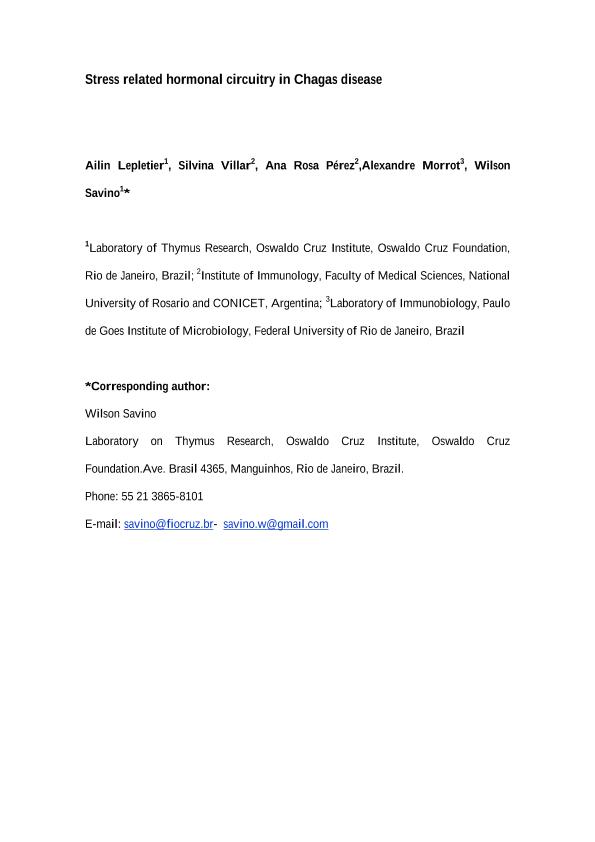Artículo
Stress related hormonal circuitry in chagas disease
Fecha de publicación:
07/2014
Editorial:
IOS Press
Revista:
Advances in Neuroimmune Biology
ISSN:
1878-948X
e-ISSN:
1878-9498
Idioma:
Inglés
Tipo de recurso:
Artículo publicado
Clasificación temática:
Resumen
During stressful processes, for example infectious diseases, neuroendocrine and immune networks act multi-directionally facilitating the host response. However in exacerbated settings, this homeostatic mechanism may be lost. Recent findings unravelled an imbalance of the immunoneuroendocrine network during Chagas disease, the infection caused by the protozoan Trypanosoma cruzi. During the acute immune response against T. cruzi, inflammatory and neuroendocrine responses become dysregulated with harmful effects for the host. One target organ is the thymus. In acutely-infected mice, it undergoes a severe atrophy, with massive depletion of immature double positive CD4+CD8+ (DP) thymocytes, which seems to be linked to a systemic and intrathymic cytokine/hormonal imbalance, involving TNF-α, glucocorticoids and prolactin. In addition, there is an abnormal export of potentially autoreactive DP cells to the periphery of the immune system, which is apparently regulated by the prolactin levels. Furthermore, TNF-α is able to differentially modulate the hypothalamus-pituitary-adrenal (HPA) axis: while having stimulatory effects at the HP unit at the adrenal it is inhibitory. Interestingly, chronically infected humans with chagasic myocardiopathy also showed alterations in HPA axis. Understanding of how T. cruzi infection lead to neuroendocrine immune-associated disturbances will provide important clues to better dissect the mechanisms underlying the pathophysiology of Chagas disease.
Archivos asociados
Licencia
Identificadores
Colecciones
Articulos(CCT - ROSARIO)
Articulos de CTRO.CIENTIFICO TECNOL.CONICET - ROSARIO
Articulos de CTRO.CIENTIFICO TECNOL.CONICET - ROSARIO
Citación
Lepletier, Ailin; Villar, Silvina Raquel; Perez, Ana Rosa; Morrot, Alexandre; Savino, Wilson; Stress related hormonal circuitry in chagas disease; IOS Press; Advances in Neuroimmune Biology; 5; 2; 7-2014; 91-98
Compartir
Altmétricas




